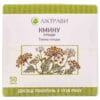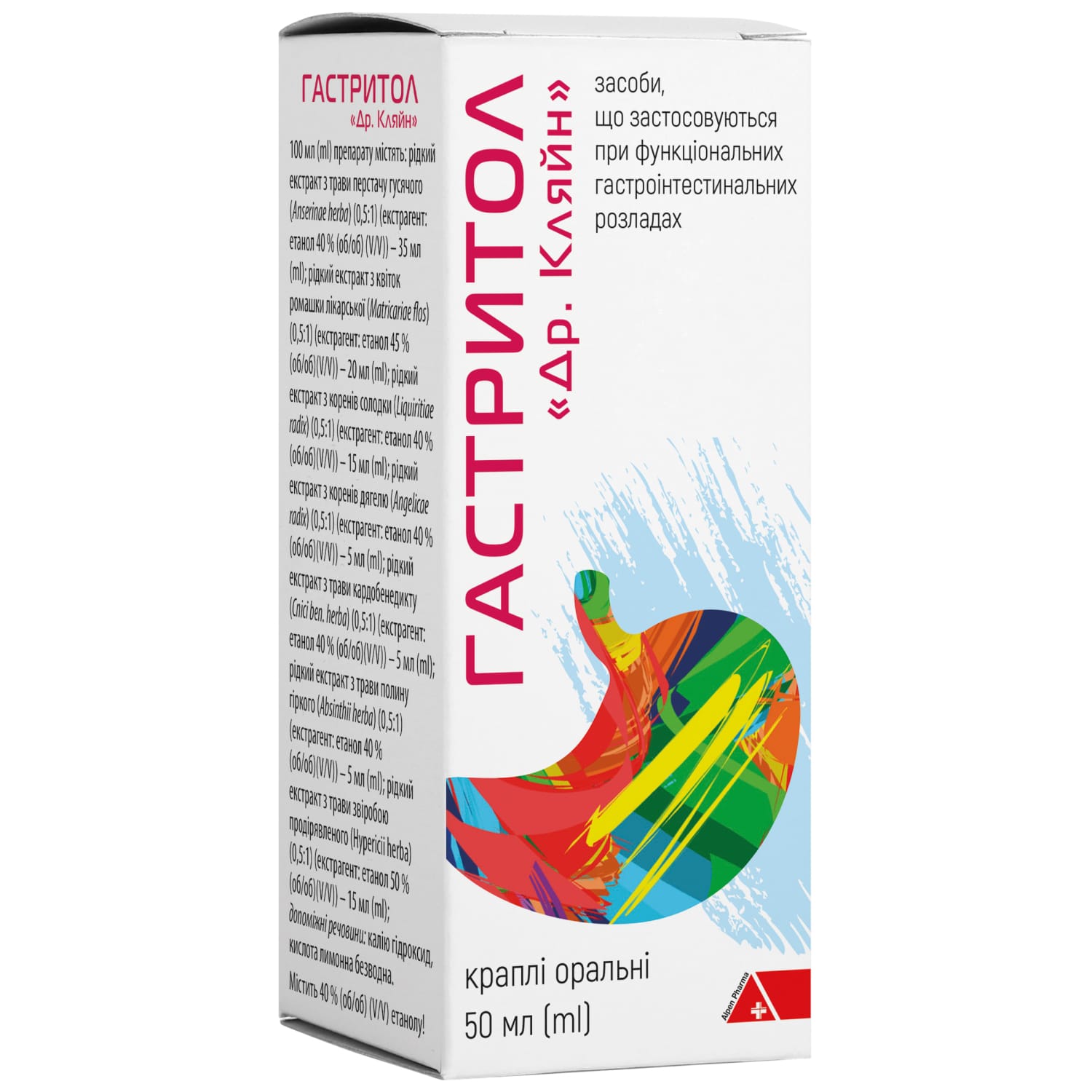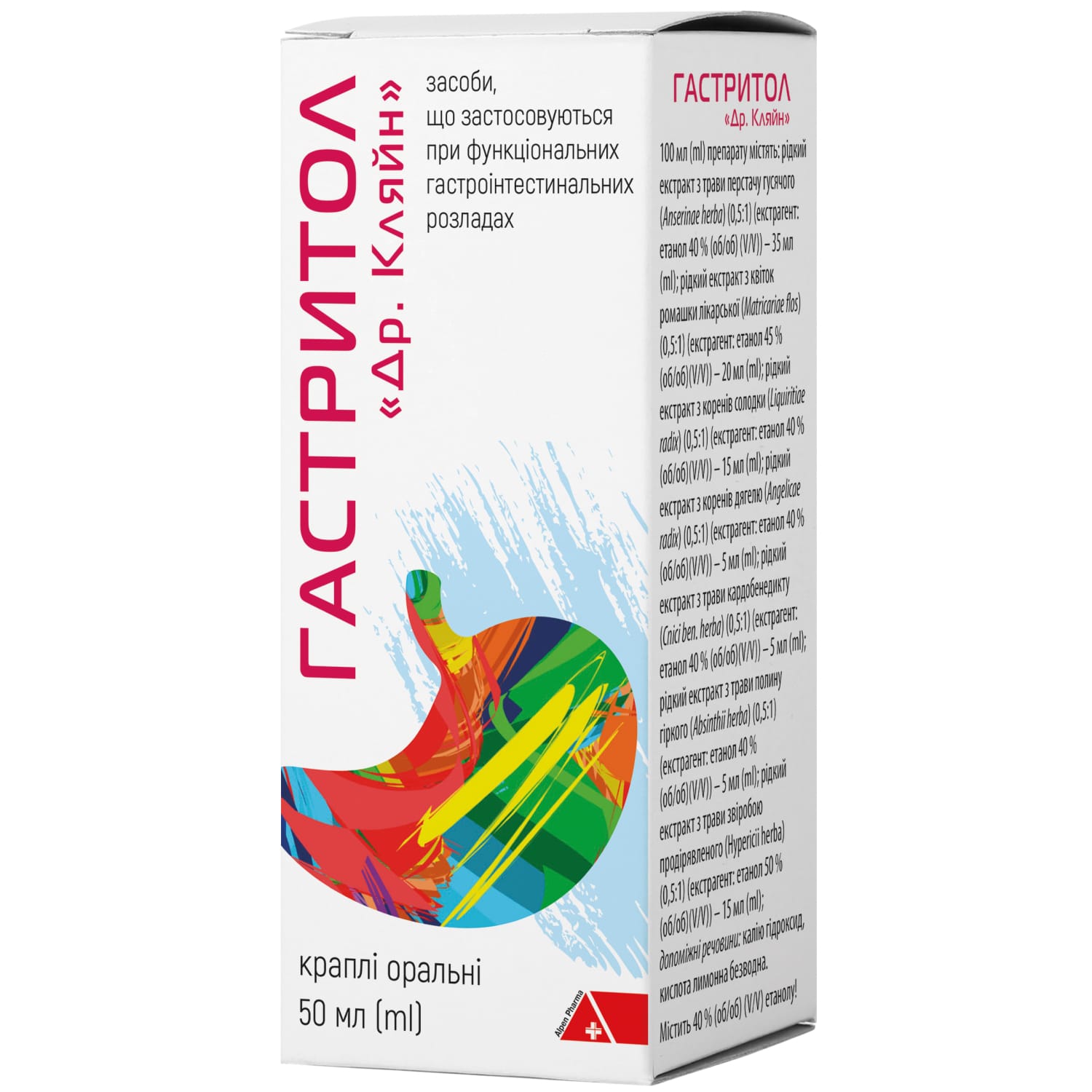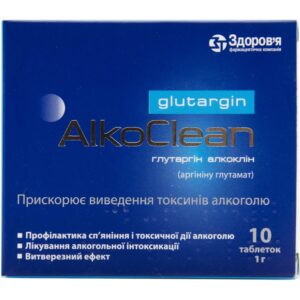We are temporarily not accepting orders from Canada due to the Canada Post strike.
Nous n’acceptons temporairement pas de commandes en provenance du Canada en raison de la grève de Canada Post.
We are temporarily not accepting orders from Canada due to the Canada Post strike.
Nous n’acceptons temporairement pas de commandes en provenance du Canada en raison de la grève de Canada Post.

Gastritol oral drops in a bottle with a dropper 50 ml
$42.96
Gastritol by Klein relieves gastritis, ulcers, dyspepsia and flatulence. Herbal drops with antispasmodic, anti-inflammatory and healing effects.
Pharmacological properties
The drug Gastritol by Klein contains active substances that cause both a local effect in the gastrointestinal tract and a central effect on the secretory and motor functions of the stomach.
Potentilla anserinaum (goose foxglove) has an antispasmodic effect on the muscles of the gastrointestinal tract.
Liquiritae radix (licorice root) contains glycyrrhizic acid, which has a powerful anti-inflammatory effect and stimulates the formation of granulation tissue, as well as reduces the tone and motility of the gastrointestinal tract (spasmodic effect). Increases vascularization of the gastric mucosa.
Matricariae (chamomile) has anti-inflammatory, antiallergic and regenerating effects. Chamazulene quickly and deeply penetrates the mucous membrane. Activation of the pituitary-adrenal system leads to an increased release of corticotropin and cortisone. β-farnesene and α-bisabolol also have anti-inflammatory and antiallergic effects.
Cnicus benedictus (cardobenedict) contains the bitter glycoside cnicine, which, like the bitter substances contained in Angelica officinalis (angelica), improves blood supply to the organs of the gastrointestinal tract, thereby accelerating the healing of ulcers and lesions of the gastric mucosa.
The bitter substance Artemisia absinthium (wormwood) increases tone in gastrostasis (cascade stomach) and reduces the severity of symptoms of gastrocardial syndrome.
Hypericum perforatum (St. John’s wort) affects the most important ulcerogenic factor, that is, psychovegetative disorders. Hypericum perforatum has an anticholinergic effect, and also reduces the secretion of gastric juice.
Indication
Functional dyspepsia, flatulence, gastritis, including chronic hyperacid gastritis, as well as as part of the complex treatment of gastric and duodenal ulcers.
Application
In the absence of other prescriptions, children aged 7-12 years should take 7-12 drops, respectively (1 drop per year of life), dissolved in a small amount of liquid, 3 times a day during meals, adults and children aged 12 years and older – 20-30 drops, dissolved in a small amount of liquid, 3 times a day during meals.
In severe and acute conditions, adults should take 15-25 drops every 30 minutes to 1 hour.
Duration of treatment – 3-4 weeks. If necessary, the course of treatment can be repeated after 2 months.
Contraindication
History of pelvic bleeding, anemia, epilepsy, hypertension (stage III), gallstone disease. Hypersensitivity to any of the ingredients of the drug, allergic reactions to plants of the asteraceae family.
Side effects
In extremely rare cases, patients with high photosensitivity of the skin may experience sunburn-like skin reactions that develop under the influence of intense solar radiation.
Allergic reactions are possible, including swelling, redness of the skin, rash, itching, possible reactions from the gastrointestinal tract, including nausea, vomiting, stomach pain, and disturbances of water and electrolyte balance.
Special instructions
The drug contains 40% ethanol by volume. 1 drop of the drug contains 0.016 g of ethanol.
Each dose, when used according to the instructions, may pose a health risk to patients with liver disease, CNS damage, and alcoholism.
Flaking or cloudiness, which is noted in liquid forms of herbal preparations, does not cause negative effects and does not reduce the effectiveness of the drug.
Use during pregnancy and breastfeeding. Due to the lack of sufficient experience, the drug should not be taken during pregnancy and breastfeeding.
The ability to influence the reaction rate when driving vehicles or working with other mechanisms. The use of the drug in the therapeutic dose range does not affect the ability to drive vehicles or work with other mechanisms.
Children. Due to the lack of sufficient experience with the use of the drug in children under 7 years of age, this medicine should not be used in this category of patients.
Interactions
Medicines containing St. John’s wort are not recommended for patients taking antibiotics, sulfonamides, antihypertensive drugs (calcium channel blockers), hypocholesterolemic drugs, coumarin anticoagulants, cyclosporine, oral contraceptives, and digoxin.
Overdose
Feeling of bitterness in the mouth, unpleasant sensations in the liver area.
Storage conditions
At a temperature not exceeding 25 °C.







Reviews
There are no reviews yet.